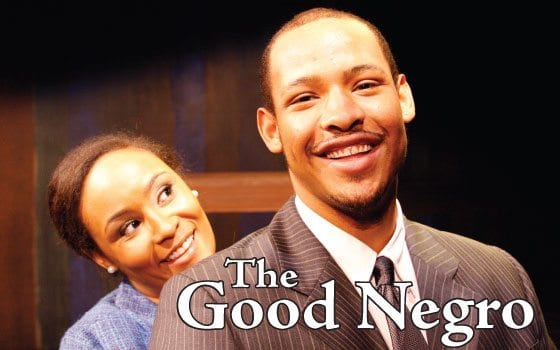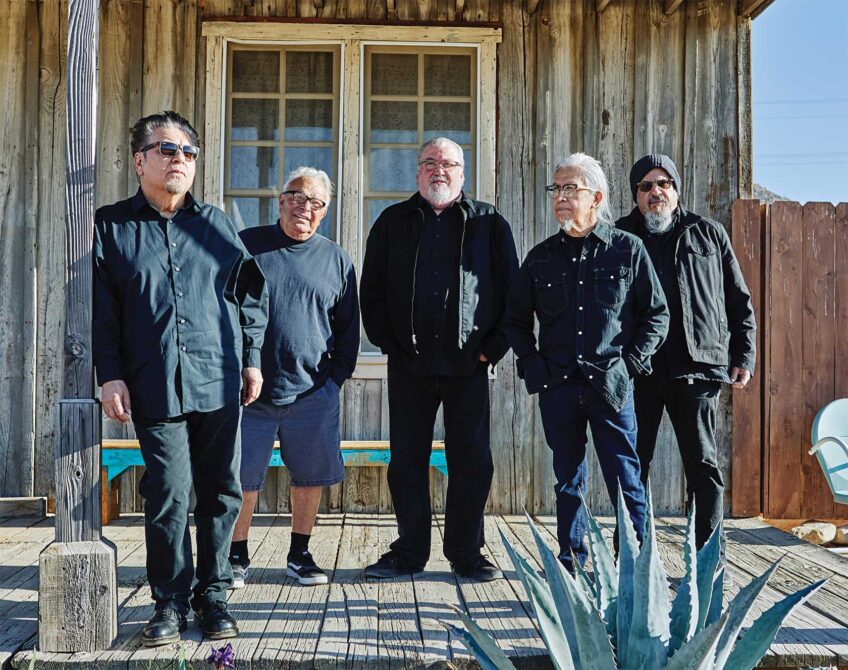

Many attribute the accomplishments of Barack Obama, the nation’s first African American President, to the efforts of the civil rights movement that rocked the nation in the 1960s.
The connection between the two lies in the sense of hope Obama brings to contemporary American culture and the sense of hope that Rev. Dr. Martin Luther King, Jr. brought to the Civil Rights Movement. It is that, coupled with MLK’s personal qualities, that come to life through James Lawrence, a charismatic southern preacher played by Jonathan L. Dent in Company One’s upcoming production of Tracey Scott Wilson’s The Good Negro.
In this humanistic approach to the Civil Rights Movement, we witness the inciting incident of the play: a black woman, Claudette Sullivan (played by Marvelyn McFarland), is beaten and arrested after allowing her child to use a “white only” bathroom at a department store in Birmingham, Ala.
The ensuing events catch the interest of Rev. James Lawrence, a leader within the “American Civil Rights Movement,” who questions the opportunity to use Sullivan and her family’s situation to advance the movement’s national goals of social justice and equality for all African Americans. Lawrence must make sure Sullivan and her family are reputable people of good character and can fit the description of “The Good Negro.”
“It’s kind of early King, as he was being established,” explained The Good Negro Director Summer L. Williams. “It explores the relationship that he had with Ralph Abernathy, Fred Shuttlesworth, and Bayard Rustin…the characters in the script mash up to form the characters at that time, and their thinking is pulled directly from the historical record.”
Connecting with the past is exactly what members of the cast and crew in the New England premiere of The Good Negro at the Boston Center for the Arts were searching for through books, and even Internet sites like YouTube.com.
In effort to capture the essence of Birmingham, Alabama at the time of the script (1962), Williams said that she often found herself referring to Diane McWhorter’s 2001 Pulitzer Prize winning book Carry Me Home: Birmingham, Alabama, The Climactic Battle of the Civil Rights Revolution. “That’s the book where I really found the strongest ties to the play,” Williams explained.
According to Williams, the book was used for reference during the writing of the script, and Wilson, the scriptwriter, often talked with McWhorter, a Birmingham native, for support.
“Tracey Scott Wilson definitely captured a lot of King’s characteristics in Rev. James Lawrence,” said Jonathan Dent who plays Lawrence. “He is the alpha male within the movement, and the pillar that everyone [in the play] is looking to for strength and security.”
When it came to references for capturing the style and mannerisms of the charismatic southern preacher, Dent turned to YouTube. “Not being religious myself made it hard to capture a character loosely based off of Martin Luther King,” Dent said. “But the script was so rich and the language was so great that it was hard not to just fall in love with the presence of the character.”
Dent further said that the book “Strength to Love” was also a great help. In the book, Coretta Scott King, compiled most of her husband’s essays and sermons into what Dent called “a great collection that really brings King to life.”
Both Williams and Dent note that one of the treasures of the script is the ability of the playwright to put significant emphasis on King as the man, preacher, father and husband.
“As the play goes further on, you can see that the weight of the world becomes heavier and heavier and things start to get more and more tumultuous,” Dent said. “Every time we think of Martin Luther King, we think of him in the limelight and how he was so articulate and eloquent. But he was just a man. At the end of the day when he went home, how did he interact with his wife and kids? That is one of the many cool things that come out in this script.”
And the script includes the usually unspoken.
“It definitely gets into a little bit of King’s personal demons,” said Williams. “The stuff we don’t talk about: the fact that he was a little bit of a ladies man. The play makes it okay for us to entertain those ideas and think about those things.”
Throughout the production, the audience also gets a look at the life of a black family in Birmingham, Alabama during the fifties and sixties.
In order to play the role of “Claudette,” Marvelyn McFarlane said she researched the role of women during that time. “Claudette is not like the women who were outwardly trying to be a part of the movement,” McFarlane explained. “She was involved mainly for the sake of her child. She hoped to save her child from the segregation and injustice that was going on at the time and was not trying to be a hero, but instead a mother.”
On that point, Williams said the play is “pretty accurate” in depicting the differences within the African American community. “When people were trying to unify, there was class-ism among blacks at that time,” Williams explained. “You had the country folk, the upper middle-class folk … and the people who were doing the not so glamorous jobs on the rougher side of town. That created great disparity between those classes, which led to constant infightings, and it was hard to get a movement started. People started asking ‘Why are we marching for them? We don’t want them to be associated with us.’ The play hints at that in terms of looking at the class that Lawrence and his wife are in versus the Sullivan’s.”
The Good Negro encompasses all of the tension, blood, sweat, and tears that were part of the Civil Rights Movement. But its director and cast both agree that the production has a very humane approach and “is a very funny play.”
“I think people tend to loose sight of that because they think ‘Oh Civil Rights, its gonna be hard – people will cry’,” says Williams. “But it really becomes such a personal story and the characters are so absorbing that you [the audience] really enjoy it.”






